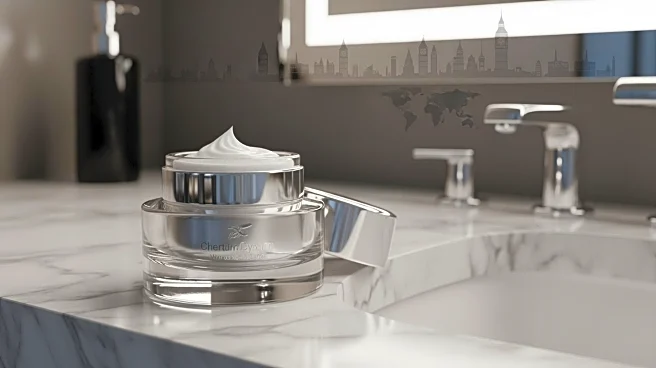What's Happening?
Luxury skincare brands are experiencing shifts in market dynamics, particularly influenced by changes in consumer behavior and economic conditions. Brands like La Prairie, which previously saw significant
growth in China, have faced challenges due to the COVID-19 pandemic and subsequent travel retail collapse. Under new leadership, La Prairie is modernizing its image and emphasizing transparency in its products. The luxury skincare sector is adapting by targeting new geographies and consumer segments, including aspirational buyers, while maintaining exclusivity. The rise of medical aesthetic treatments poses a competitive challenge, prompting brands to demonstrate the efficacy of their products more convincingly.
Why It's Important?
The luxury skincare market's adaptation to changing consumer preferences and economic conditions is crucial for its sustained growth. Brands that successfully navigate these shifts can tap into new markets and consumer segments, potentially increasing their market share. The emphasis on product efficacy and transparency aligns with consumer demand for demonstrable results, which is increasingly important in a competitive landscape. The sector's ability to compete with medical aesthetic treatments could redefine consumer expectations and influence purchasing decisions, impacting the broader beauty industry.
What's Next?
Luxury skincare brands are likely to continue exploring new markets and consumer segments, focusing on product innovation and efficacy. The integration of in-store beauty services and experiences may become more prevalent as brands seek to enhance consumer engagement. As the market evolves, brands will need to balance exclusivity with accessibility, potentially leading to new product lines or pricing strategies. The ongoing competition with medical aesthetic treatments may drive further advancements in skincare technology and formulations.
Beyond the Headlines
The shift towards transparency and efficacy in luxury skincare reflects broader consumer trends towards informed purchasing decisions. This could lead to increased scrutiny of product claims and a demand for scientific validation. The industry's adaptation may also influence other sectors within the luxury market, as brands seek to align with evolving consumer values. The focus on new geographies highlights the global nature of the beauty industry and the importance of cultural sensitivity in marketing strategies.









